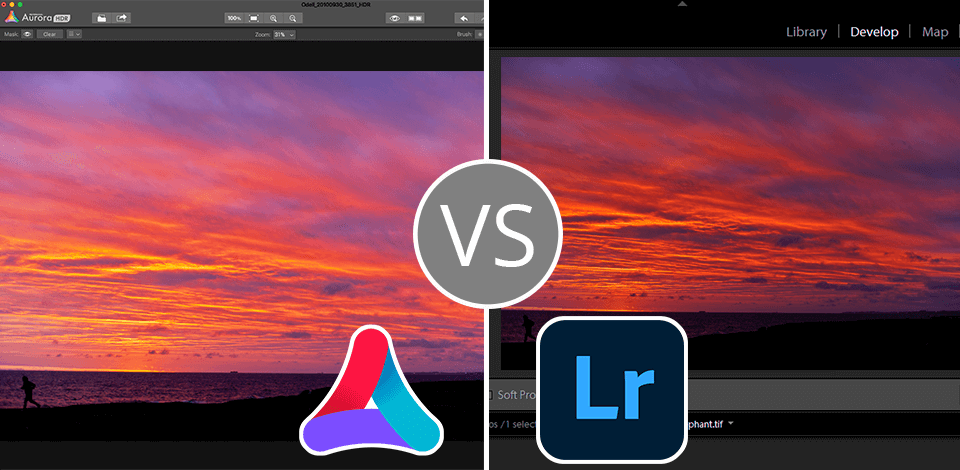
Comparing Lightroom vs Aurora HDR (HDR Merge tool now) when processing one of the latest landscape photos, I find that Lightroom is better for novice users because of its intuitive interface and comprehensive toolkit. This program produces realistic HDR images and allows adjusting tone and contrast effectively.
In its turn, the HDR Merge tool also offers a simple-to-use UI, but there are some issues when working with large file sizes. I faced multiple lags and glitches when my computer tried to export a batch of HDR-merged images.
Lightroom is an all-in-one and novice-friendly tool for processing HDR and RAW files as well. This is an excellent option for tinkering with different effects with handy Lightroom HDR presets and photo-organized features.
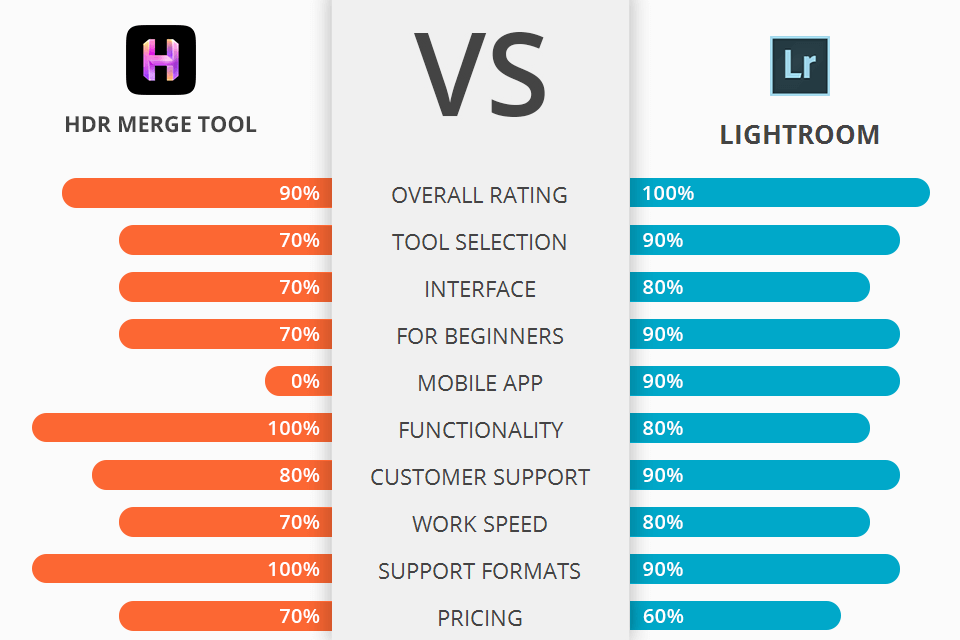
|
|

HDR Merge Tool
|

Lightroom
|
|
Rating |
★★★★☆ 4/5 |
★★★★☆ 4.5/5 |
|
Best For: |
Real estate photographers and those who need to combine many exposures faster |
Photographers looking for comprehensive photo editing and organizing tool |
|
Free Trial |
❌ |
✔️ |
|
Price |
$7.95/mo |
$9.99/mo |
|
Platforms |
Windows, Mac |
Windows, Mac, Web |
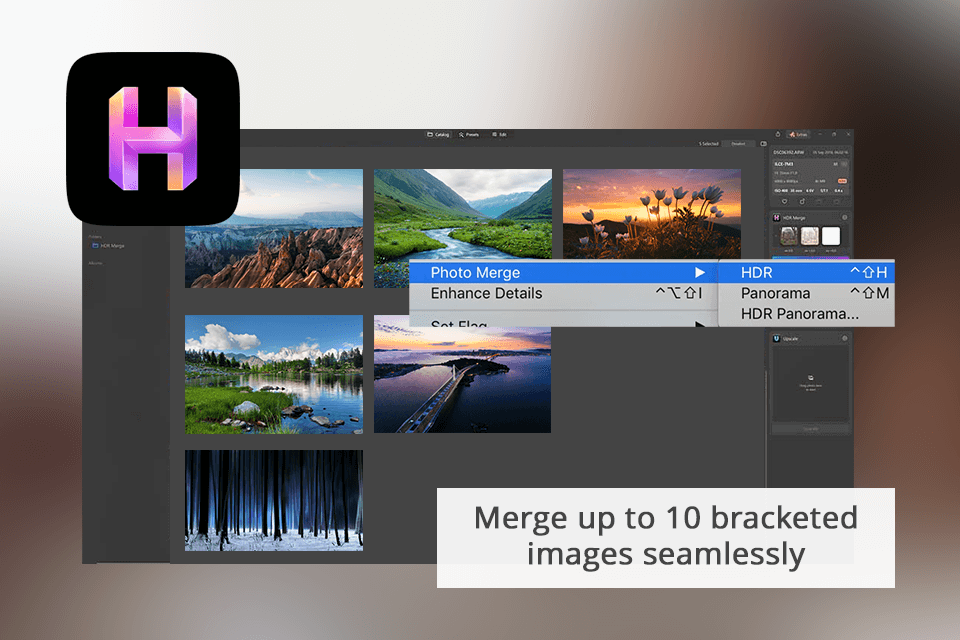
The HDR Merge tool in Luminar Neo was replaced with Aurora HDR. The highlight of the new extension is the ability to merge multiple exposure bracketed images into one impressive HDR pic with lifelike colors and perfect lighting.
There is also a highly functional Auto Adjust feature that enhances the dynamic range and contrast automatically, so even beginners can achieve spectacular results with ease.
I also took advantage of its filter feature, thanks to which removing artifacts and accentuating details in shadows in my landscape images became an intuitive procedure. The undisputable benefit of Luminar Neo is a lot of automatic controls and presets that make things easier.
I share photos on social media networks and many followers commented that HDR images look a bit unrealistic. I think this is because HDR exaggerates image defects and colors.
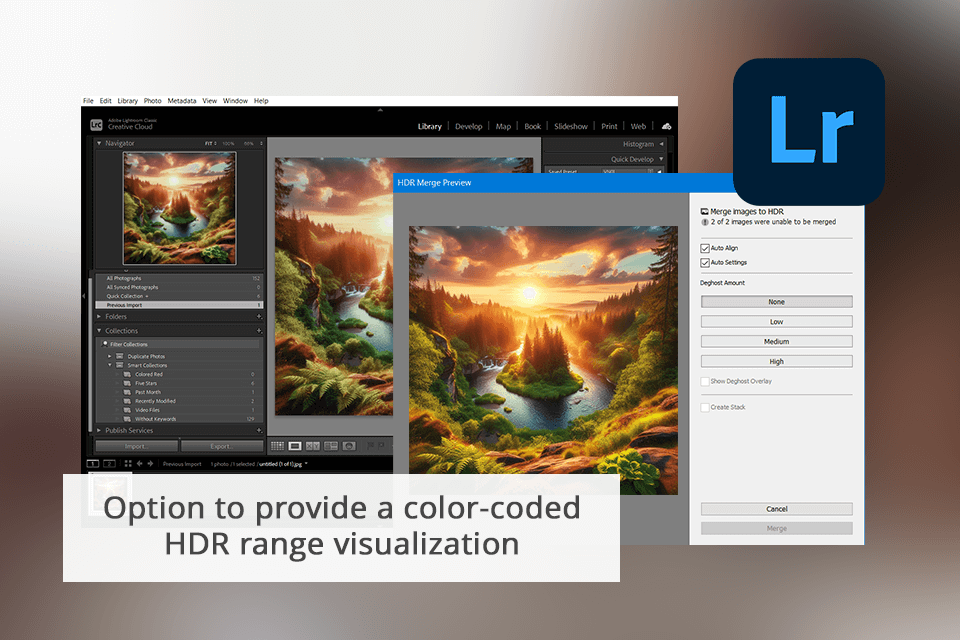
Working with HDR pics in Lightroom, I always start from the Light panel (Basic panel in Lightroom Classic), where I can adjust Exposure, Highlights, and Whites by just dragging a slider. Point Curve awards an editor with full control when enhancing HDR tones, which is a big plus.
The Visualize HDR feature is another effective way to understand HDR content. I think that this option is extremely convenient. At the bottom of the Light (Basic) panel, there is a checkbox that you can enable to mark HDR tones with four different colors, including cyan and magenta.
Lightroom offers a handy HDR merge feature for generating impressive high dynamic range images, and its ability to process RAW files ensures that the quality of the result will be top-level.
Besides, users are free to play with different effects and even free Lightroom presets to unleash their imagination. I also took advantage of its cataloging system to keep my collection neatly organized.
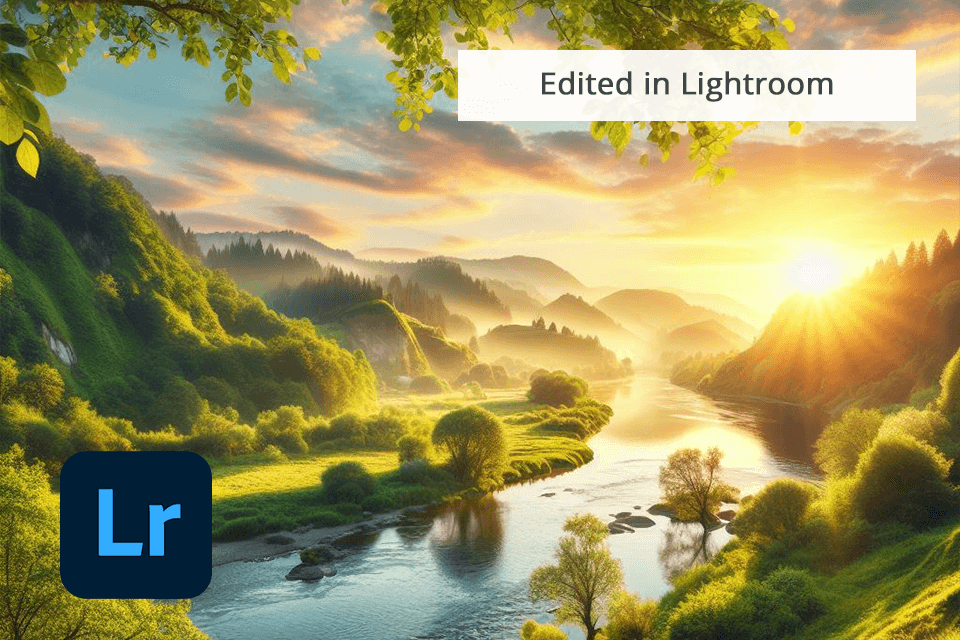
HDR Merge tool vs Lightroom comparison showed that the second tool has a better HDR feature, while the HDR Merge tool produces a bit painterly look. I guess that the colors look unnatural and weird because of the high ISO settings.
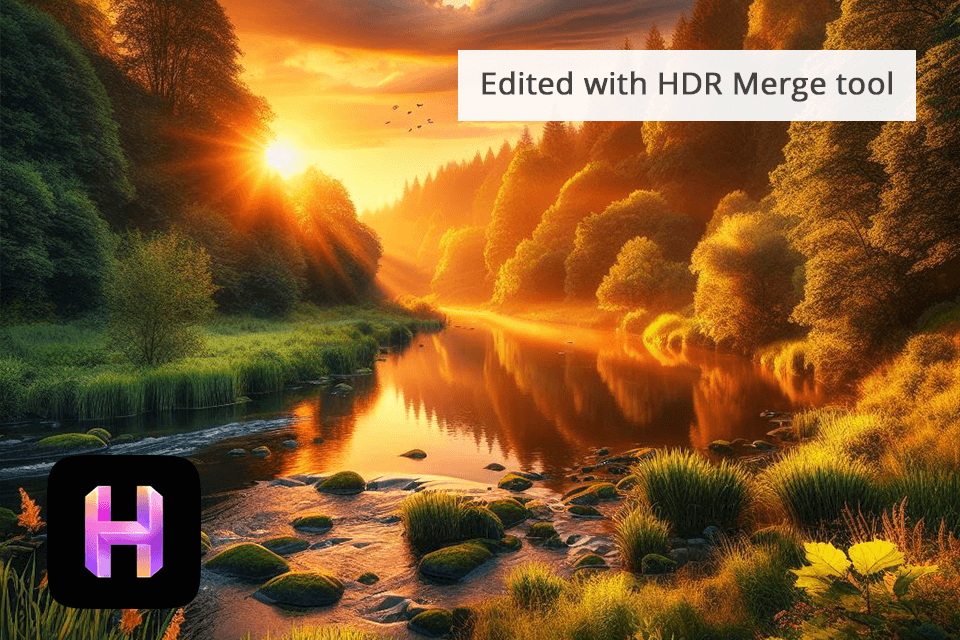
To еdit photos in Lightroom more effectively, I take advantage of its ability to handle moving objects and ghosting effects, which are superior. This is why I find Lightroom a more appropriate solution for HDR processing and general edits as well.
|
|

HDR Merge Tool
|

Lightroom
|
|
Free Trial |
❌ |
✔️ |
|
Price |
$7.95/mo |
$9.99/mo |
|
Best Offer |
Lifetime with Extensions |
Creative Cloud All Apps |
|
|

HDR Merge Tool
|

Lightroom
|
|
Windows |
✔️ |
✔️ |
|
Mac |
✔️ |
✔️ |
|
Linux |
❌ |
❌ |
|
Web |
❌ |
✔️ |
|
|

HDR Merge Tool
|

Lightroom
|
|
|
✔️ |
✔️ |
|
Live |
✔️ |
✔️ |
|
Community |
✔️ |
✔️ |
|
Phone |
✔️ |
✔️ |
|
|

HDR Merge Tool
|

Lightroom
|
|
Photoshop |
✔️ |
✔️ |
|
Illustrator |
❌ |
✔️ |
|
Adobe Firefly |
❌ |
✔️ |
|
Luminar NEO |
✔️ |
❌ |
I tend to use Lightroom in my workflow, as this option is more convenient and more integrated, and comes with Photoshop, so it’s a win-win option for any photographer, I guess.
What I like most about the HDR Merge tool is that it can be used as a plugin for Lightroom extending its functionality and enriching it with handy automated features for simpler and more intuitive image processing.